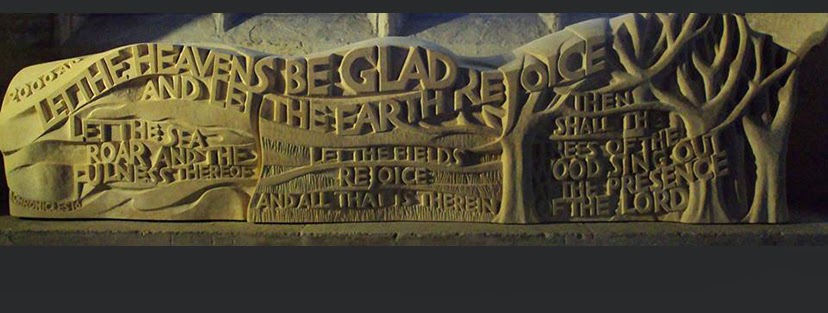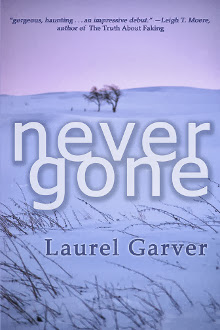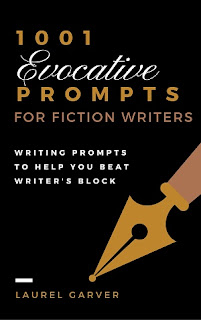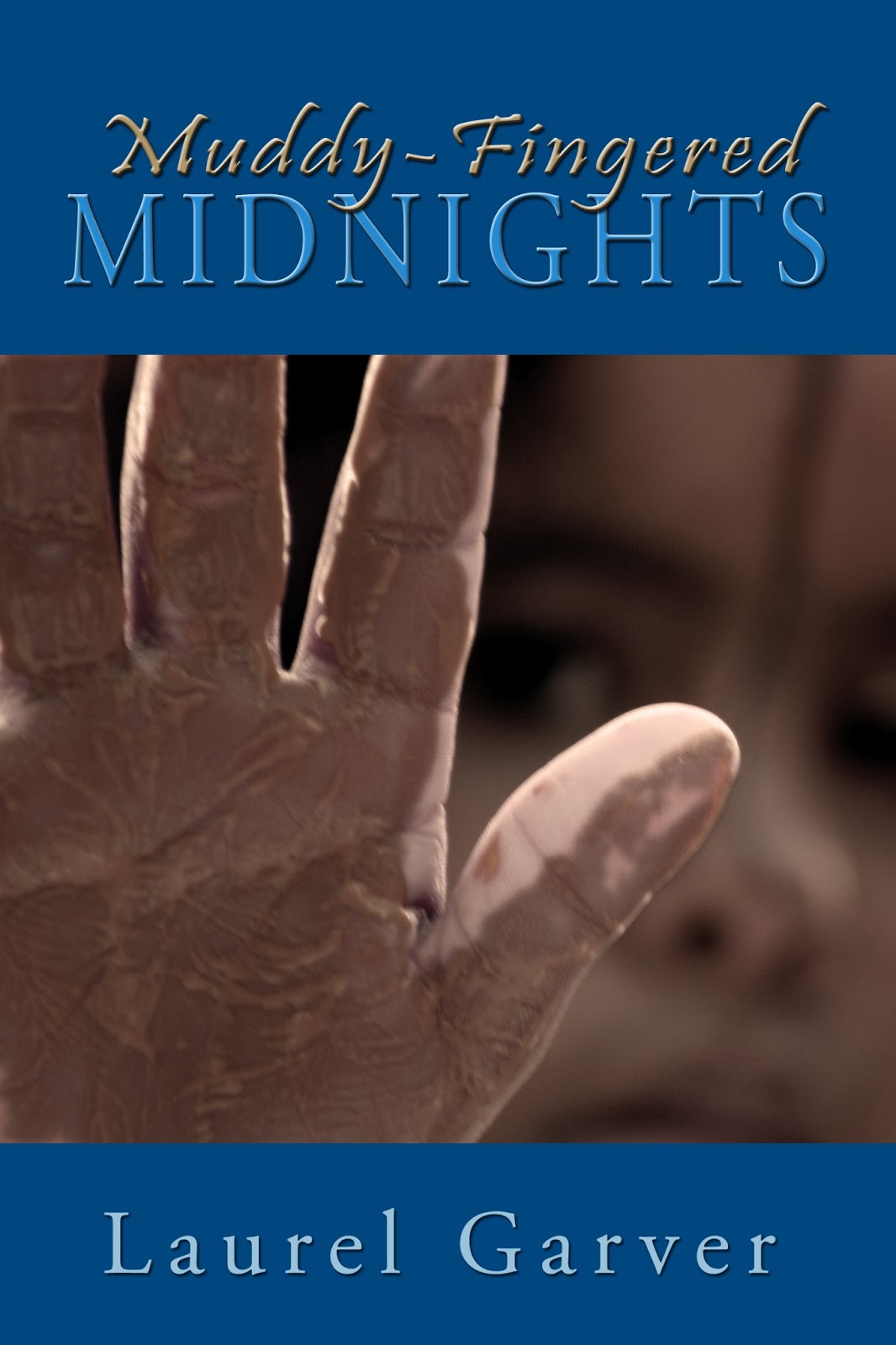Laurel's note: I asked today's guest, "What unique life experiences have shaped the topics and themes in your writing?" Cleo's experiences with loss and hardship have given her some very gripping raw material. Read on to learn more.
By Cleo Lampos
It isn’t the life that I would have planned. But on the far side of midlife, there isn’t a thing that I would change. No regrets. The experiences of early years created this writer who delves into the issues of child rescuing and second chances.
My father’s death left my mother with two preschoolers, a teenage son and no social security in Greeley, Colorado. She had spent her youth surviving the Dust Bowl, Great Depression and World War II. Now, in 1950’s boom, our little family faced poverty. Mom tried to work third shift at the canning company with a teenage girl sleeping all night with us. My brother enlisted in the Navy, leaving one less mouth to feed. Frugality and ingenuity kept us going until I entered second grade and Mom married a man who she barely knew. In short time, she regretted the abusive alcoholic behavior that filled most days.
Moving from state to state for “a fresh start” intensified a pattern of isolation and insecurity for the family. As the physical abuse intensified, Mom tried to escape by taking us “underground”. We lived in a tiny bedroom in a nursing home in Wisconsin, eating with the residents, then walking to school. After a semester in that situation, my sister and I entered the foster care system, living with a relative, then with a foster family on a farm. I am still in contact with my “other mother” and five foster sisters who showered me with love.
When Mom gained custody of us, I entered high school with nine different educational systems behind me. Almost an elective mute, speaking in class presented problems for me. The speech teacher, Mr. Schubert, forced me to give presentations and overcome my fears. He taught me that my thoughts and feelings were worthy of attention. Today I speak at many venues and am comfortable with the process.
University of Wisconsin-Whitewater awarded a four year tuition scholarship to me, so the only expenses were room and board for a four-year degree. Throughout the college years, most of my time was spent working in the library, carrying overloads of credits and staying on the honor roll to keep the scholarships. As with other children of alcoholics, I stayed closed off from deep relationships, thinking that no one could understand my past. But the approval from high grades and well written papers satisfied the people-pleasing need so deeply engrained in me. Difficulty having fun made these years hard work.
Predictably, my career choice involved relationships with people who required rescuing. With a degree in teaching children from deprived backgrounds, my own need to be rescued transferred to the students in my care. Later, a degree in teaching behavior disordered and emotionally disturbed children led to an urban setting where my rescuing tendencies made me an excellent teacher. Finally, my own background and the circumstances of my pupils matched, resulting in an intuitive educator who conducted her class with empathy, caring and compassion. Understanding both parents and students provided a place of healing for all of us.
Writing in a journal to prevent “teacher burnout”, it occurred to me one day that some of the entries resembled magazine articles in teacher journals or religious take-home papers. Soon, a dozen articles had been published and plans for a book dedicated to encouraging educators. Adding quotes and suggestions to my classroom narratives, Teaching Diamonds in the Tough: Mining the Potential in Every Child was published by Lighthouse of the Carolinas. Transparent feelings and fears fill each page of this devotional.
Then the thought that all the experiences as a teacher in an urban setting might provide relaxing late night reading created the series, Teachers of Diamond Project School. Each stand- alone book is based on the 3 R’s: reality, reflection and romance. So many of the plot lines are actually incidents from my own interactions in the classroom. In Second Chances, Zoey Pappas knows her cows, but not her gangs. Miss Bee and the Do Bees invites the reader into a challenging special education classroom. Cultivating Wildflowers takes Alana Alcott into the world of foster care. My self-published books mimic real life.
With artist Maralyn Dettman, Grandpa’s Remembering Book helps families with the journey of Alzheimer’s Disease. Rescuing Children takes the reader into the lives of eight men and women who spent their lives taking children from degradation and death to useful lives. The Dust Bowl: Living Through Tough Times talks about the many ways that those of the Great Depression overcame hardships. Dust Between the Stitches is the fictional version of the 1930’s struggle of beet farmers in Colorado trying to stay afloat.
The novel that capitalizes on my childhood is A Mother’s Song, which South Side Chicago Irish claim is the best description of Irish immigration. So much of my mother’s story and my own emotional baggage are conveyed in that book. The plot is simple: one girl and the two mothers that she loves.
My latest non-fiction is Piecing Fabrics, Mending Lives: The History, Philosophy and Ingenuity of Quilters. The essays in this book explore how women piece their scrappy lives back together into coherent wholes. My thoughts harken to my mother’s life and mine.
Every experience, whether positive or negative, is useable in writing that transforms a reader. May my words bring healing to others.
Website: www.cleolampos.com
Facebook: Author Cleo Lampos
E-mail: cleolampos@gmail.com
In 1890, Deirdre O'Sullivan lives in Five Points, New York City with her husband, son and four year old, Ava Rose. Pregnant with their third child, Deirdre works as a washerwoman at the hotel's laundry. If Sean works at all, he drinks his paycheck at the pub. When he is killed in an accident at work, Deirdre is devastated. She gives birth to another son, but cannot work at the laundry. The oldest son lives on the street as a newsie. Rather than let Ava Rose and her baby brother starve to death with her, she signs for them to be put on an orphan train. This orphan train takes these youngsters to Nebraska to Claudine, who has suffered multiple miscarriages. Will the adoption provide the safety and opportunity that Deirdre hopes? This researched story of two mothers and the child who loves both is heart wrenching. It is a poignant tale of hope and courage against unfathomable odds for a better life.
By Cleo Lampos
It isn’t the life that I would have planned. But on the far side of midlife, there isn’t a thing that I would change. No regrets. The experiences of early years created this writer who delves into the issues of child rescuing and second chances.
My father’s death left my mother with two preschoolers, a teenage son and no social security in Greeley, Colorado. She had spent her youth surviving the Dust Bowl, Great Depression and World War II. Now, in 1950’s boom, our little family faced poverty. Mom tried to work third shift at the canning company with a teenage girl sleeping all night with us. My brother enlisted in the Navy, leaving one less mouth to feed. Frugality and ingenuity kept us going until I entered second grade and Mom married a man who she barely knew. In short time, she regretted the abusive alcoholic behavior that filled most days.
Moving from state to state for “a fresh start” intensified a pattern of isolation and insecurity for the family. As the physical abuse intensified, Mom tried to escape by taking us “underground”. We lived in a tiny bedroom in a nursing home in Wisconsin, eating with the residents, then walking to school. After a semester in that situation, my sister and I entered the foster care system, living with a relative, then with a foster family on a farm. I am still in contact with my “other mother” and five foster sisters who showered me with love.
When Mom gained custody of us, I entered high school with nine different educational systems behind me. Almost an elective mute, speaking in class presented problems for me. The speech teacher, Mr. Schubert, forced me to give presentations and overcome my fears. He taught me that my thoughts and feelings were worthy of attention. Today I speak at many venues and am comfortable with the process.
University of Wisconsin-Whitewater awarded a four year tuition scholarship to me, so the only expenses were room and board for a four-year degree. Throughout the college years, most of my time was spent working in the library, carrying overloads of credits and staying on the honor roll to keep the scholarships. As with other children of alcoholics, I stayed closed off from deep relationships, thinking that no one could understand my past. But the approval from high grades and well written papers satisfied the people-pleasing need so deeply engrained in me. Difficulty having fun made these years hard work.
Predictably, my career choice involved relationships with people who required rescuing. With a degree in teaching children from deprived backgrounds, my own need to be rescued transferred to the students in my care. Later, a degree in teaching behavior disordered and emotionally disturbed children led to an urban setting where my rescuing tendencies made me an excellent teacher. Finally, my own background and the circumstances of my pupils matched, resulting in an intuitive educator who conducted her class with empathy, caring and compassion. Understanding both parents and students provided a place of healing for all of us.
Writing in a journal to prevent “teacher burnout”, it occurred to me one day that some of the entries resembled magazine articles in teacher journals or religious take-home papers. Soon, a dozen articles had been published and plans for a book dedicated to encouraging educators. Adding quotes and suggestions to my classroom narratives, Teaching Diamonds in the Tough: Mining the Potential in Every Child was published by Lighthouse of the Carolinas. Transparent feelings and fears fill each page of this devotional.
Then the thought that all the experiences as a teacher in an urban setting might provide relaxing late night reading created the series, Teachers of Diamond Project School. Each stand- alone book is based on the 3 R’s: reality, reflection and romance. So many of the plot lines are actually incidents from my own interactions in the classroom. In Second Chances, Zoey Pappas knows her cows, but not her gangs. Miss Bee and the Do Bees invites the reader into a challenging special education classroom. Cultivating Wildflowers takes Alana Alcott into the world of foster care. My self-published books mimic real life.
With artist Maralyn Dettman, Grandpa’s Remembering Book helps families with the journey of Alzheimer’s Disease. Rescuing Children takes the reader into the lives of eight men and women who spent their lives taking children from degradation and death to useful lives. The Dust Bowl: Living Through Tough Times talks about the many ways that those of the Great Depression overcame hardships. Dust Between the Stitches is the fictional version of the 1930’s struggle of beet farmers in Colorado trying to stay afloat.
The novel that capitalizes on my childhood is A Mother’s Song, which South Side Chicago Irish claim is the best description of Irish immigration. So much of my mother’s story and my own emotional baggage are conveyed in that book. The plot is simple: one girl and the two mothers that she loves.
My latest non-fiction is Piecing Fabrics, Mending Lives: The History, Philosophy and Ingenuity of Quilters. The essays in this book explore how women piece their scrappy lives back together into coherent wholes. My thoughts harken to my mother’s life and mine.
Every experience, whether positive or negative, is useable in writing that transforms a reader. May my words bring healing to others.
About the Author
Cleo Lampos was born in Colorado, but raised in rural Iowa and Wisconsin. After graduating from University of Wisconsin-Whitewater, she taught in the Chicago area. Raising three children with her husband, Vernon, she attained a Master’s from St. Xavier University-Chicago and taught behavior disordered/emotionally disturbed students for 26 years. Lampos has been published in magazines such as Lookout, Teachers in Focus and Power for Living. She is the author of seven books. Her life is filled with speaking engagements at senior groups, local community colleges, book clubs, and women’s discussion circles. Living in suburban Chicago, the Lampos’ are urban farmers certified by the University of Illinois. They are active in their church and love their 11 grandchildren.Website: www.cleolampos.com
Facebook: Author Cleo Lampos
E-mail: cleolampos@gmail.com
About the Book
A Mother’s SongIn 1890, Deirdre O'Sullivan lives in Five Points, New York City with her husband, son and four year old, Ava Rose. Pregnant with their third child, Deirdre works as a washerwoman at the hotel's laundry. If Sean works at all, he drinks his paycheck at the pub. When he is killed in an accident at work, Deirdre is devastated. She gives birth to another son, but cannot work at the laundry. The oldest son lives on the street as a newsie. Rather than let Ava Rose and her baby brother starve to death with her, she signs for them to be put on an orphan train. This orphan train takes these youngsters to Nebraska to Claudine, who has suffered multiple miscarriages. Will the adoption provide the safety and opportunity that Deirdre hopes? This researched story of two mothers and the child who loves both is heart wrenching. It is a poignant tale of hope and courage against unfathomable odds for a better life.
Available at Amazon.com
Are there any compelling stories in your history or in your family's history that you'd love to draw on in your own fiction?













